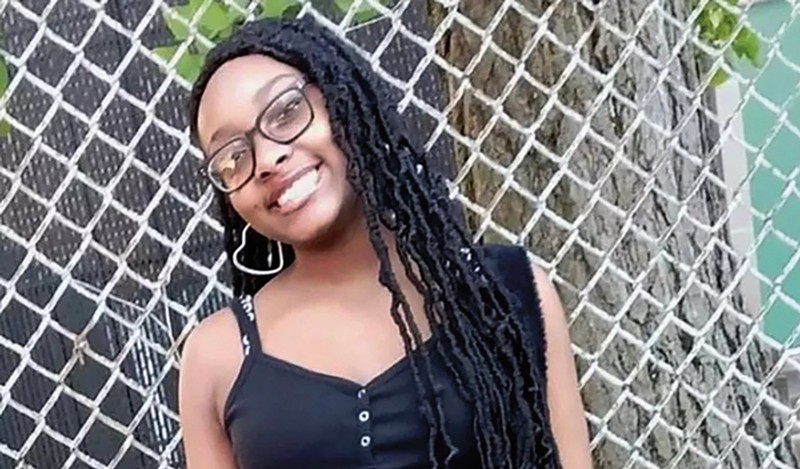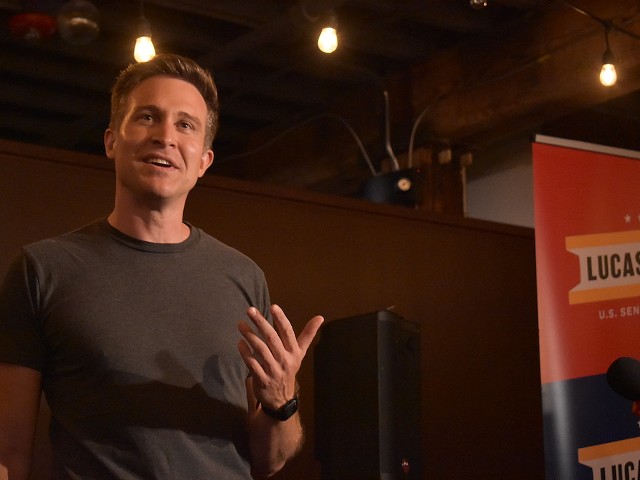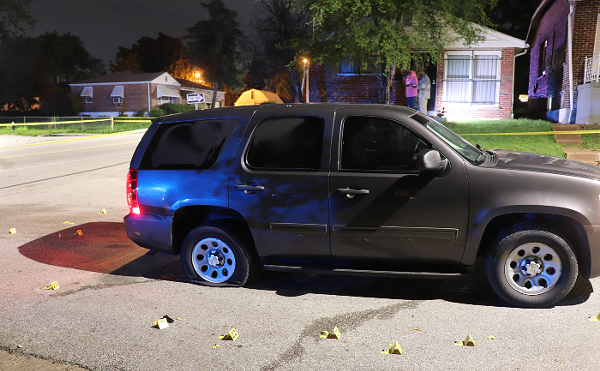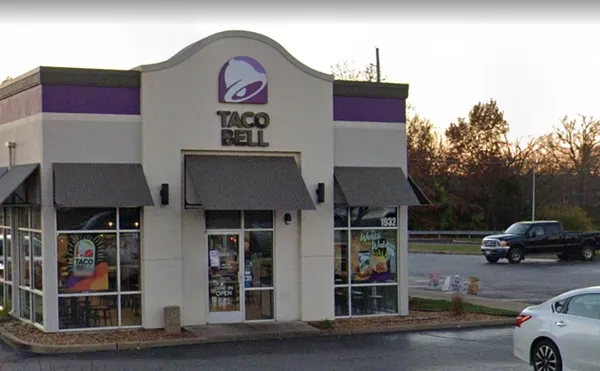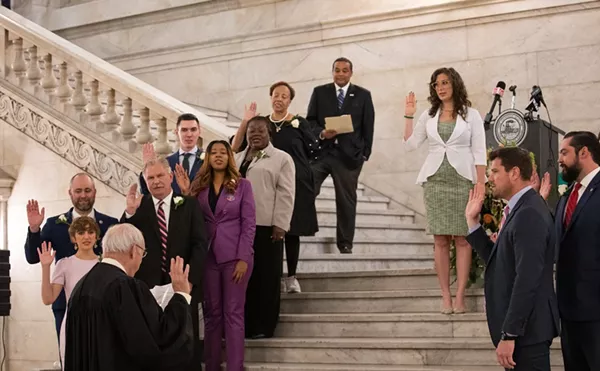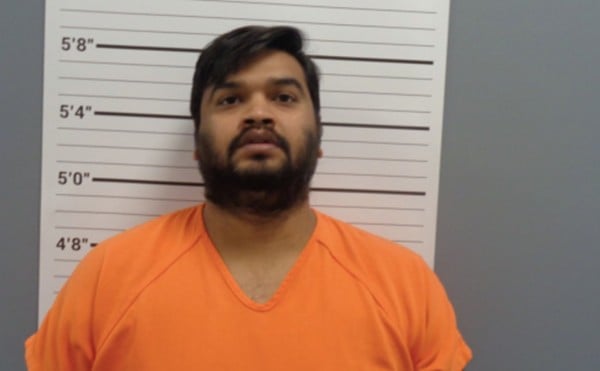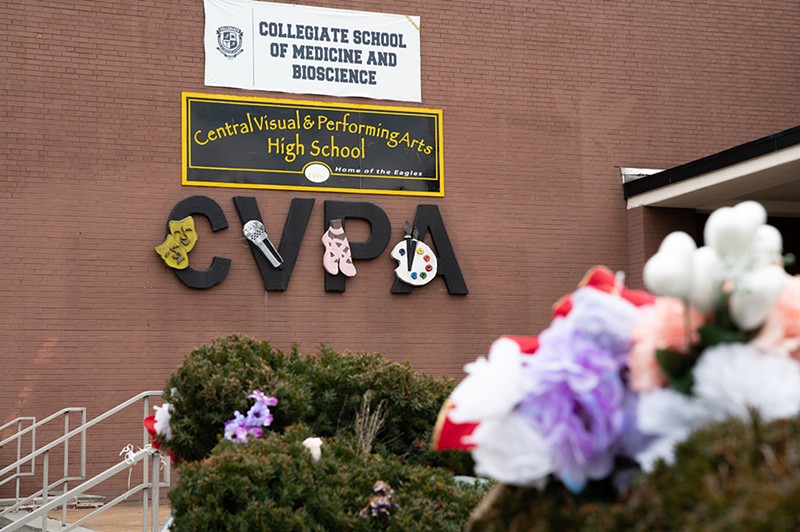
The sound of gunfire was the first indication to Je'Rya Luster that this was more than a drill.
Moments before, an announcement had sounded on her high school's intercom. "Miles Davis is in the building" — the phrase is the school's code for an intruder.
It'd been a normal, quiet morning. Her school, Central Visual and Performing Arts, or CVPA, had practiced school-shooter drills before, so she didn't think much of the announcement at first. But shortly after the warning blared, Luster heard gunfire. Windows broke in the distance. An angry voice sounded, "All of you are gonna die!"
She was so scared, the sophomore says. Luster believed the voice.
The voice came from 19-year-old Orlando Harris, who on the morning of October 24, 2022, stormed into his alma mater prepared for war. He held a .223 caliber, AR-15-style rifle. He'd strapped to his chest seven rounds of ammunition. In a field bag, he'd stuffed an additional eight magazines. All told, Harris had more than 600 rounds of ammunition — enough to do far more damage than he did.
Police would later find a manifesto in his car, a piece of notebook paper on which Harris had written about his life as an "isolated loner."
He wrote: "This was the perfect storm for a mass shooting."
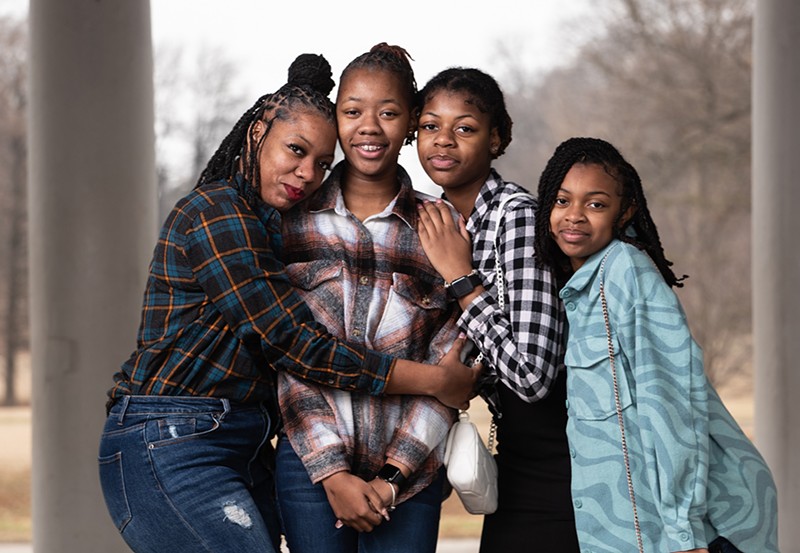
Harris was more right than he could have known. The "perfect storm" that led up to Harris' rampage in his alma mater began long before he decided to harm innocent students and teachers, however. It didn't really begin with Harris, either. Rather, it started with the Missouri General Assembly.
December marked the 10th anniversary of an event that most people believed unthinkable until it happened: Adam Lanza killing 26 innocent people at Sandy Hook Elementary School in Newtown, Connecticut. What was unimaginable in 2012 is all too common now. There were 93 school shootings with casualties at public and private elementary and secondary schools during the 2020-2021 school year, according to the National Center for Education Statistics. Only 16 school shootings occurred in the 2011-2012 school year.
Yet, as mass shootings become more commonplace and other states tighten their gun laws in response, Missouri has taken steps in the opposite direction.
Since 2012, Missouri's Republican-dominated legislature has all but erased what little gun control the state previously had. Now, 19 year olds can carry concealed weapons without a permit. People no longer have to receive gun safety training or pass criminal background checks to carry concealed firearms in parks, shopping malls or most public spaces. If a guardian allowed it, a child could own a gun.
Before Orlando Harris forced his way into CVPA, he had done nothing illegal under Missouri's gun laws. His gun, purchased from a private seller, was bought legally — despite Harris' failure to pass an FBI background check in a separate attempt to buy one from a licensed dealer 16 days before his rampage. Nine days prior to the shooting, his mother called St. Louis Metropolitan Police to remove her son's weapon. But police thought they had no legal authority to do so. A law passed in 2021 bars police from enforcing federal firearm laws that don't align with the state's, and police erred on the side of caution.
Missouri's gun-control shortfalls are not lost to most lawmakers open to reform. This legislative session, these lawmakers are fighting for gun reform again — and harder than ever before.
October's shooting in St. Louis has spurred lawmakers to propose at least 16 gun-control measures for Missouri's 2023 legislative session.
Backers of gun reform have tried and failed to change state laws in the past, while bracing for the possibility that a mass shooting would someday happen in their neighborhoods.
This fear became a reality for state Representative Peter Merideth (D-St. Louis) in October. CVPA lies in his district. The magnet school shares a building with Collegiate School of Medicine and Bioscience.
"We know it's going to happen again, and we continue to do nothing about it," says Merideth, who has four gun-reform proposals on the books for this year. "It's not just about passing common-sense gun laws; it's about not passing the opposite."
But in a state that arguably places Second Amendment rights above all others, can bringing bills to a gun fight prevail? Pro-reform lawmakers hope the horror of what unraveled at CVPA will spur their colleagues to take action.
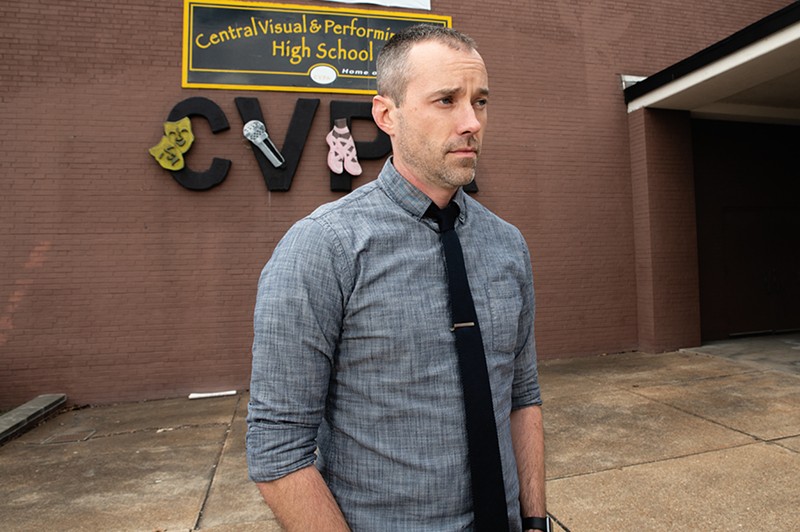
Social studies teacher Matthew Pace had just started a new unit on the Constitution when the school's code sounded on the intercom. It didn't sound normal. Fuzz clicked on the sound system, and after a brief moment, someone yelled "Miles Davis, Miles Davis," and hung up. It sounded urgent, different from the apathetic tone of drills. Had he missed an email about a drill?
His students, huddled against a wall in his classroom, were laughing and talking to each other as they often did in drills. Then they heard gunshots. He could hear a clip drop to the floor from what sounded like right outside his room.
In a way, Pace had prepared for this moment. He had bought a sturdy cane made of oak a few years ago after a high-profile school shooting (he can't remember which) to use for protection in case a shooter ever came to his classroom. A cane was a less conspicuous form of protection, as opposed to something like a baseball bat.
"I didn't want something that was obviously meant as a weapon," Pace says.
He stood by his classroom door with the cane clenched in his hands, ready to swing if the intruder made his way into the room.
After about 10 to 15 minutes, he heard a female officer's voice and peeked his head out to look. Pace and his students then escaped through an emergency exit.
The gravity of what he went through didn't settle until everyone had gathered at Gateway STEM High School afterward and he found out Jean Kuczka, a 61-year-old health teacher and Pace's friend, had died from gunshot wounds.
"Mrs. Kuczka was close with everybody," Pace says. "She was funny. She was smart. The kids loved her."
Alexzandria Bell also lost her life that day. Among many things, she was 15, a dancer and a friend to many.
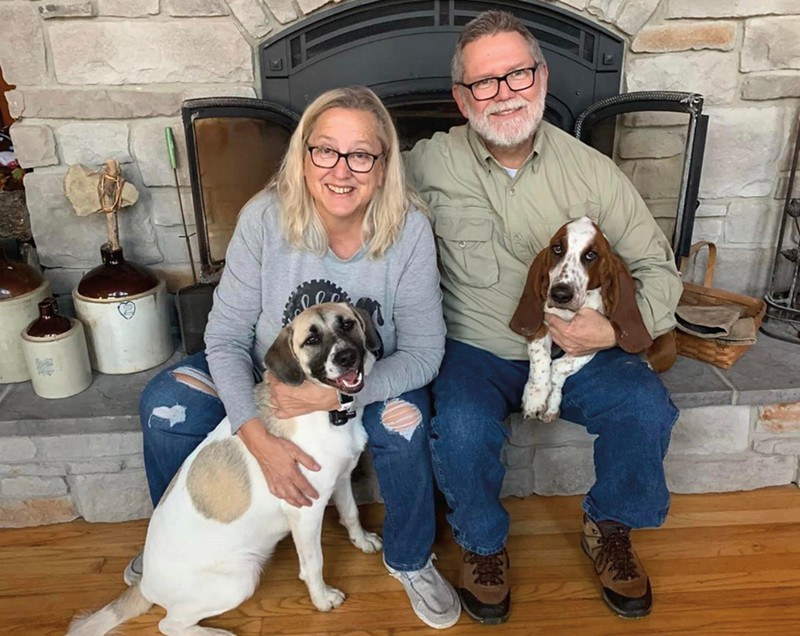
It didn't take long for CVPA and Collegiate students to catch on to the shortcomings of their state's laws. A week after the shooting, students lay on the steps of St. Louis City Hall with their arms spread and eyes shut to emulate students killed by gun violence. "Justice for Alex," they shouted. "Justice for Kuczka!"
Over a dozen legislators listened and pre-filed a slew of bills for Missouri's 2023 legislative session in response. Most proposals have already been implemented in other states and are championed by gun-control advocates as "common sense" measures.
Representative Patty Lewis (D-Kansas City) wants all sales or transfers of firearms to be processed through licensed dealers. Representative David Tyson Smith (R-Columbia) has pre-filed a bill to make it a class A misdemeanor for anyone younger than 20 to buy or lease a semi-automatic or automatic firearm. Under his proposal, sellers would also face a misdemeanor charge if caught selling or leasing firearms to customers younger than 20.
Most proposals would also create "red-flag" laws, or a legal means to prevent individuals who show signs of being a threat to themselves or others from possessing a gun.
State Representative Ian Mackey (D-St. Louis) had two bills in 2020 and 2021 aimed at keeping firearms out of the wrong hands. Neither made it out of committee, but October's shooting inspired Mackey to try a third time.
There are a "whole host" of fixes that would alleviate the "epidemic" of gun violence, Mackey says. Red-flag laws are a good place to start.
"There are potential changes to our gun laws that I think would have prevented the CVPA shooting and would mitigate further instances of gun violence," Mackey says. "Between 20 to 30 states have better gun laws, including red states."
Under Mackey's proposal (nearly identical to his last two), anyone concerned about an individual with a firearm would be able to file an extreme-risk protection order with a court, which would then determine if the owner is an extreme risk to themselves or others.
Doug Beck, a Democratic state senator from Affton, pre-filed a similar bill to Mackey's in the past aimed at installing a red-flag law in Missouri. None of the bills received a hearing.
On December 1, Beck pre-filed a new bill that would prevent anyone on the federal Terrorist Screening Center's No Fly List from purchasing a firearm. In a previous session, he received "a lot of pushback" for the measure.
A gun owner himself, Beck says most "responsible" gun owners should agree with tightening Missouri's gun laws.
"This would make everyone safe," Beck says. "These [assault-style] weapons are designed to take as many human lives as they possibly can and in a short period of time. It's so frustrating to me — especially when we're talking about wanting to be pro-life."
Despite October's tragedy, legislators who spoke to the RFT say opposition to gun reform from Missouri's Republican majority will always remain.
Democrats and the lone Republican with gun-reform proposals would have to convince a Republican-dominated legislature to go against their rural constituents and minimize their Second Amendment right to bear arms — a right Missouri Governor Mike Parson has said he will fiercely defend.
"I'm encouraged that folks on the other side of the aisle — even those who were kind of resistant to this in previous sessions — see very clearly, from the evidence in this case, that this incident would have been prevented had a red-flag law been in place," Mackey says.
Will Missouri's legislature learn from past mistakes? Representative Merideth has his doubts.
"They are opposed to any gun law whatsoever — it's really that simple," Merideth says. "Anything that doesn't make it easier to have a gun, they oppose."
But this isn't the first time a tragic event of gun violence has shaken the St. Louis area and the lawmakers who represent it, and it's not the first time lawmakers followed with proposed legislation bent on making it harder for guns to get in the wrong hands.
After a particularly deadly summer when 13 children were killed by gun violence in St. Louis in 2019, lawmakers, mostly from the state's urban areas, filed at least 15 bills to crack down on gun violence. None passed.
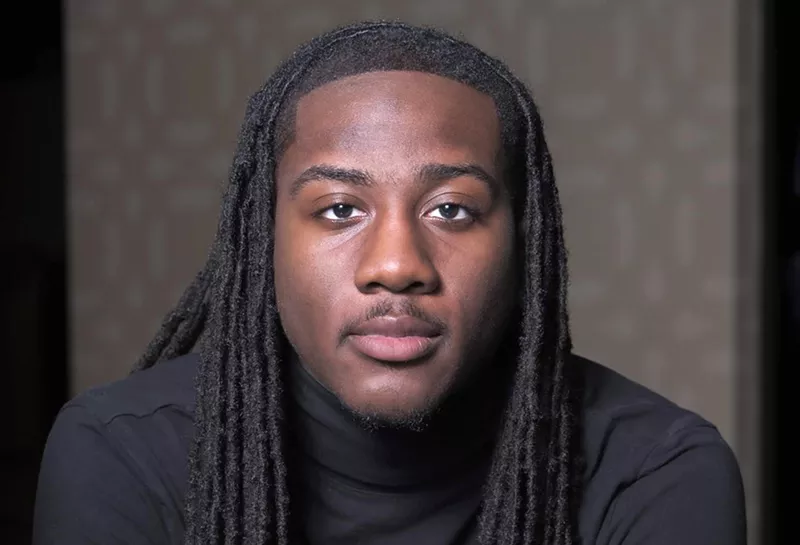
For Rayquan Strickland, the reality of imminent danger dawned on him soon after he heard a large boom from somewhere in the school. Sirens blared outside, but that wasn't out of the ordinary. A busy street lined the front of the school, so hearing sirens was normal.
But the boom was not normal. A fallen table? A slammed door? Surely not gunshots.
Then he heard screams.
"He just shot my teacher!" someone yelled outside.
This immediately set everyone in Strickland's class on edge. He cowered in a corner with his classmates as they texted and called their families. He tried to remain calm; as the only boy in the classroom, he says, he worried about the safety of his female classmates. Would he have to defend them?
Then came more clashes and the sound of someone trying to break into a room. Then came gunshots, and more screams, and the patter of police officers' hurried steps. The police made their way into Strickland's classroom.
Run. They were told to put their hands up and run.
Above Strickland, on the second floor, the school shooter had barricaded himself into Kuczka's classroom, where Keshuan Brooks was in health class with Kuczka not 15 minutes before.
Brooks and his twin brother had texted their mom, writing, "Mom, I'm about to die, I swear to God" and "Mom, there's an intruder in the school. You got to come get us now."
Soon after, Harris fired shots into the classroom. Kuczka stood in front of her students as they piled through the window. Some of the students who weren't hit by gunfire were injured by the fall, spraining their wrists or ankles. But adrenaline helped most of them who weren't stopped by paramedics to run to a nearby Schnucks parking lot, where Strickland fielded call after call.
Strickland, months after the shooting, recalls the most terrifying day of his life. He speaks calmly but from a remote second person.
"You never expect this to happen to your school," Strickland says. "It was so unreal."
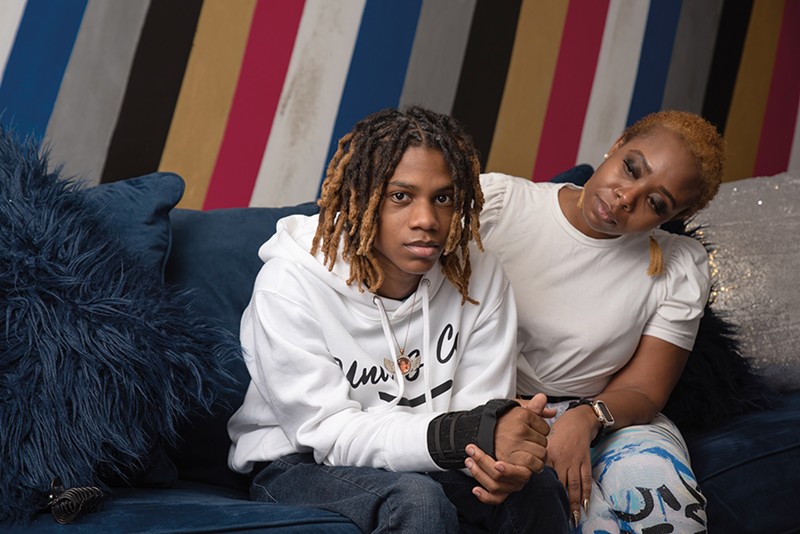
It's early December, hardly a month after Harris shot Brian Collins' hands and face. Collins was in Kuczka's class — one of the students who survived by braving a fall out of his classroom's window.
Collins had transferred to CVPA just a week before the shooting in October. He wanted to get better at drawing.
As he sits on his family's couch in his St. Louis County home, he fiddles with the braces on his hands. They keep his hands steady until he has surgery to remove bullet fragments left in his bones. A bullet remains lodged in his right mandible that his doctors have no plans of removing, according to Collins' mother, VonDina Washington. It landed mere centimeters from a major artery. It's a miracle her son survived, Washington says.
A picture of Collins reached national news outlets after the shooting; the image showed him asleep in a hospital bed, a heart monitor attached to his left forefinger, his hands and forearms covered in medical wrap. Hardly six weeks after the shooting, Collins is a far cry from this image. He moves freely and seemingly without pain.
When he speaks, his words are soft and quiet.
What does he like to draw? "Whatever's interesting."
What would he like to do after school? "I'm not sure yet."
Does he look forward to going back to school? He shakes his head no. "I feel like I'll get crowded."
Washington was like most other CVPA and Collegiate parents on the day of the shooting. She received a call at work. When she answered, Collins said, "Mama, I'm shot." This initiated a mad dash to south city, where blocks of parents were doing the same, some leaving their vehicles in the street in a frantic pursuit to find their kids.
Two hours before, Washington recalls, she had dropped her son off at school at 7:10 a.m. and saw a teacher lock an entrance gate. It wasn't until she finally got to Children's Hospital where doctors tended to Collins that the situation started to sink in.
"I was like, 'Dang, my baby got shot,'" Washington says. "My baby got shot at school."
The weeks that followed were stressful. But now, Washington regrets rejecting the several interviews local and national journalists asked for following the shooting. She wants to call attention to deficiencies in Missouri's gun laws.
"I wasn't in the mental space," she says. "But I really wish that I would have. I think there was an opportunity for voices to be heard, and I think we were silent on it."
She's never been too into politics. At the same time, the shooting has unwillingly put her in a position where she thinks she could help other people.
"I have to use this situation in order to help other people and hopefully prevent this from happening again," she says. "Although, I don't think there's anything that we can do to prevent this."
Washington doesn't blame Harris' mom. She doesn't blame Harris either, really. He had mental-health issues he didn't know how to deal with, she says. Maybe, if anything, she wonders if the school could've had tighter security.
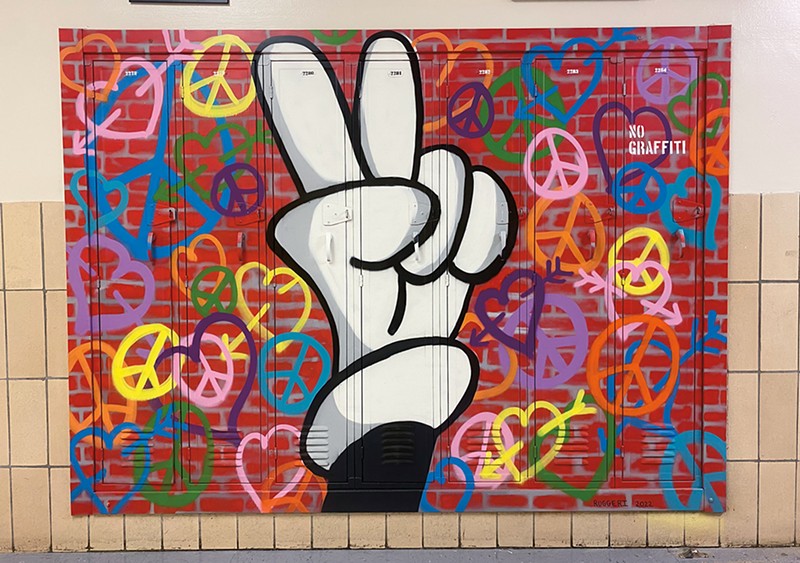
For Pace, his "heart breaks" for Harris, who "needed help that we have denied." He's gotten through the last few months by going on long walks and forgiving the legislators who, in his eyes, accepted Kuczka and Bell's lives as an acceptable price for lenient gun laws.
The shooting's victims don't bother to assign blame anymore. Those who did at first are trying to move on, to heal from the worst day of their lives. Pointing fingers hasn't brought them peace.
For Luster, moving on was hard at first. She'd lost Bell, one of her good friends.
At midnight on November 18 — what would have been Bell's 16th birthday — Luster says she especially mourned the loss of her friend but afterward felt a sense that it was safe to move on.
It's taken her a long time to recover, Luster says — though that day has far from permanently stifled her and her classmates' spirits.
In short, straight-to-the-point answers, Luster sums it up matter-of-factly: "Our spirit is really uplifting," she says, describing her own spirit as "always sunshine and rainbows."
She adds: "That's not something the school shooting could take away."
Strickland had a lot of "why" questions after the shooting. Why did Harris come back to the school? Why did he hurt people he didn't really know? Why teachers?
"I've realized I won't find an answer to that question, so I won't ask it," Strickland says.
Instead, every time he thinks about it now, he feels grateful to have his life. He cries — not necessarily tears of sorrow, or even happiness, but a sharp feeling of something in between — a painful awe that his life could've ended at 17, but he's still here. By some miracle, he's still here.
Surrounded by family on Thanksgiving, he cried. He cried remembering "that moment," the one where he felt he could have lost his life. The moment his friends could have lost theirs.
"For those of us who came out as survivors, for those of us who are still here, we're definitely grateful for life," Strickland says. "And we're grateful for each other."
Coming soon: Riverfront Times Daily newsletter. We’ll send you a handful of interesting St. Louis stories every morning. Subscribe now to not miss a thing.Follow us: Google News | NewsBreak | Reddit | Instagram | Facebook | Twitter

